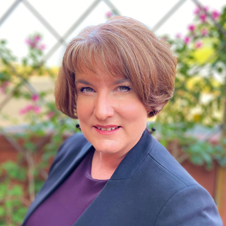(Repost of a May 2024, post on the LEARN Network Blog.)
July 30, 2024 | By Morgan Solender
The LEARN Network recently hosted a panel discussion with scholars and practitioners who understand the unique considerations required to design, research, and scale evidence-based products in and across rural communities. The panel was moderated by Victoria Schaefer and included Thomas Farmer, Linda Friedrich, Darris Means, and Melissa Sadorf. Below are five key takeaways from the conversation.
Understanding the Breadth and Diversity of Rural Communities
1. Understand the diversity of rural communities. One in three schools in the United States is rural, and these schools are ethnically, spatially, and socioeconomically diverse. The context of each place plays a critical role in determining how well an innovation will work. To promote equity across communities, seek to understand different rural contexts and prioritize commonalities that arise in your target rural contexts. In her role as a superintendent, Melissa Sadorf emphasized the importance of understanding cultural context:
“Being culturally aware is very important. What are the needs of that community? Who lives in that community? What background and gifts do they bring to the school doors? We really need to think about what the programs and products are that we might be considering and whether they address our needs.”
2. Emphasize access. Take into account structural, cultural, and environmental factors may limit access to your innovation and embed solutions that allow for widespread use. When speaking about selecting products for her own school district, Melissa Sadorf highlighted the importance of access:
“Access issues really do really matter. Is it a language issue? Is there broadband that we need to take into consideration? It is important to pay attention to the solutions school leaders are encountering and make sure they aligned with where they want to take their students.”
Designing for Rural School Engagement
3. Involve the community in the design process. Developing innovations that are effective and sustainable in rural communities requires involving local stakeholders who have a deep understanding of their communities’ contexts. From the beginning, it is critical to build relationships with community members to gain insight into their community’s strengths and needs and more effectively improve relevant student outcomes. Darris Means explained the importance of community involvement:
“I want to caution drive-through approaches. You can’t assume you know everything already. These fast approaches can be superficial and not effective. Focus on building relationships and spend time listening and learning. Find opportunities for collaboration while considering the unique needs of a community.”
Thomas Farmer emphasized this point:
“From the very beginning, do you have the right people at the table? Do you have folks in the community or even at the regional or state level understanding the needs of the school and of the place? As researchers, once we go in and do our work, we are going to be gone. Sustainability is about creating structures, processes, and relationships.”
4. Understand the essential components of an innovation while allowing for adaptation to specific community needs. Rural areas often have smaller staffs of teachers serving students with many different needs. Being able to effectively communicate the essential evidence-based components of your innovation helps rural communities determine if your product is a good fit for their specific needs. At the same time, ensure that your innovation allows for adaptations. Thomas Farmer emphasized the importance of flexibility when speaking about his early work in rural Alabama:
“The whole idea of adaptation is critically important. We need to figure out what the core evidence-based elements of a program or product that address a particular area are and, from there, use data to adapt to specific students and the teachers they are working with. We have to be very careful that we don’t expect teachers to do everything in exactly the same way with all of their students.”
Linda Friedrich highlighted the importance of product fit in the scaling process:
“Whether it is a professional development program or a product, really be very clear about the things that are essential and the variety of ways we can get to those essential components. Think about that as you are doing outreach. Having clarity about what is essential allows you to work in partnership with rural communities to say is this a fit and here are the ways in which we can be flexible to do that.”
Scaling Evidence-Based Innovations to Rural Schools
5. Engage educators in the scaling process. Teachers who work in rural communities have a deep understanding of the strengths and challenges of implementing innovations in rural contexts. Offering rural teachers leadership and input opportunities during the scaling process allows them to not only help roll out innovations in their own communities but serve as trusted consultants and facilitators at a national level. When speaking about her work scaling an evidence-based program, Linda Friedrich highlighted the importance of engaging educators in the scaling process:
“We chose a rural teacher from Pennsylvania to be our lead facilitator. She stayed at her high school and has been a facilitator at the same time. When she is in rural communities, she is really able to listen to the things that are unique about that place and then be somebody who can talk about how she as a rural teacher addressed the unique needs of her own students. So really thinking about, are there consulting roles that folks from rural communities can play in the scaling process?”
Watch the entire discussion here for even more insights and advice! You can also find a transcript of the conversation here.
Meet the panel

Moderator Victoria Schaefer, EdD: Director of the Regional Educational Laboratory (REL) Appalachia, Senior Principal Education Researcher, and TA Provider at SRI Education

Thomas Farmer, PhD: Chair of the Department of Foundations of Education at Virginia Commonwealth University

Linda Friedrich, PhD: Director of Literacy at WestEd

Darris Means, PhD: Associate Professor in Educational Foundations, Organizations, and Policy at the University of Pittsburgh

Melissa Sadorf, PhD: Superintendent of the Stanfield Elementary School District
Topics: Access and equity Research and evaluation
Tags: Evidence-based Innovation Policymakers Procurement Research & Developers
